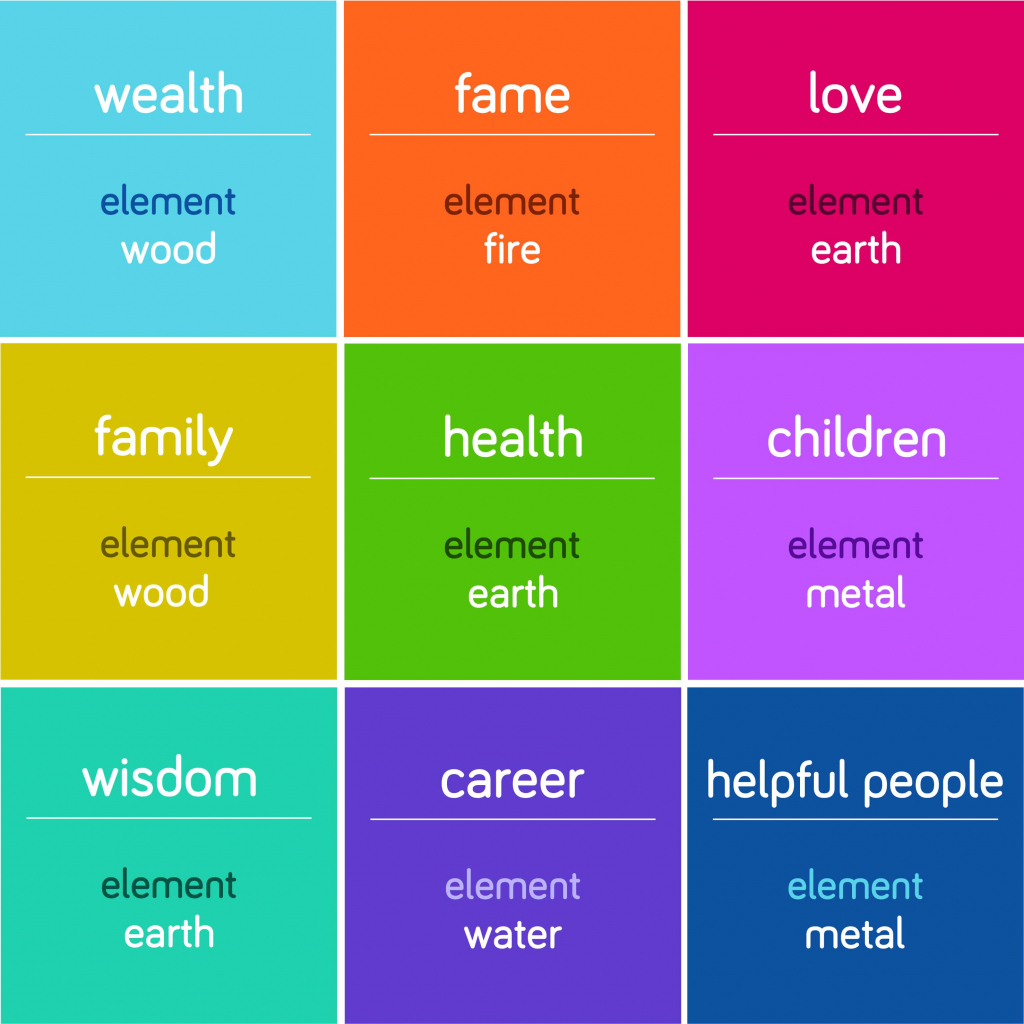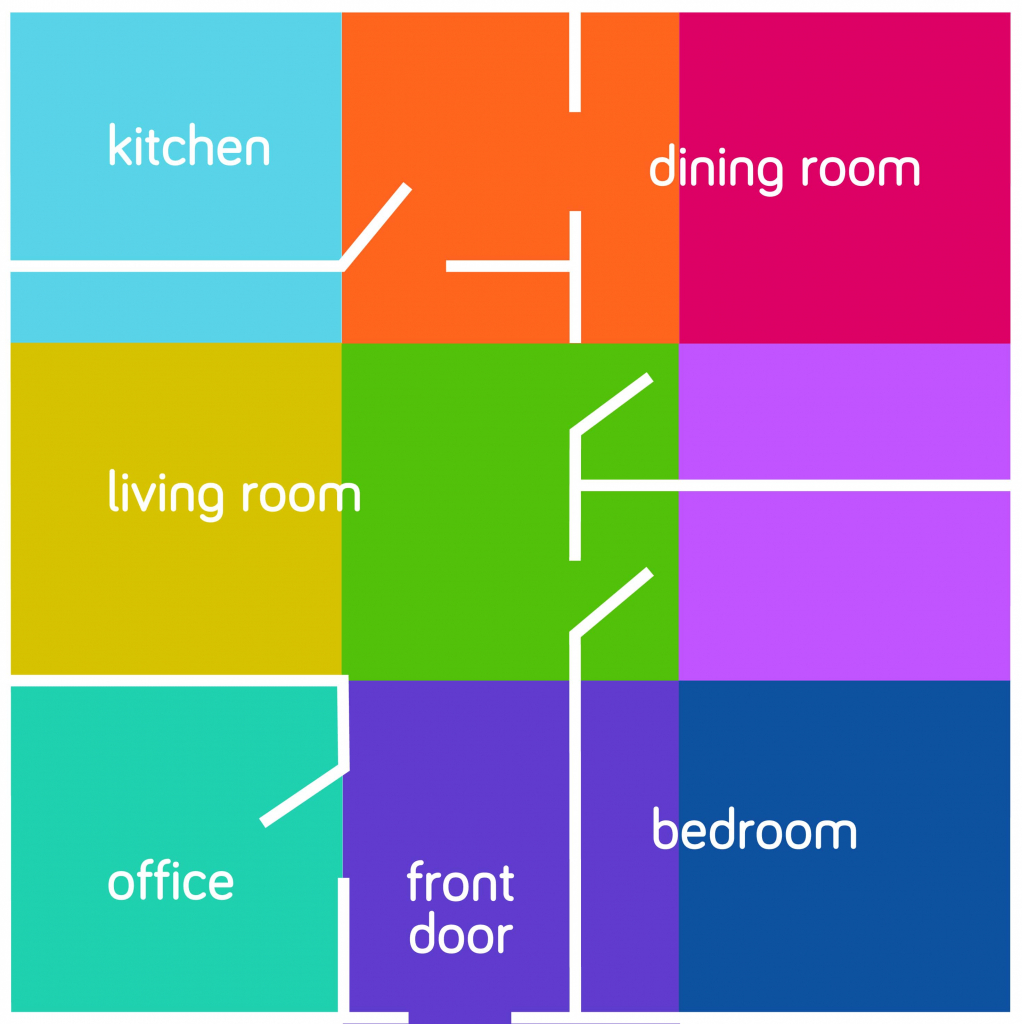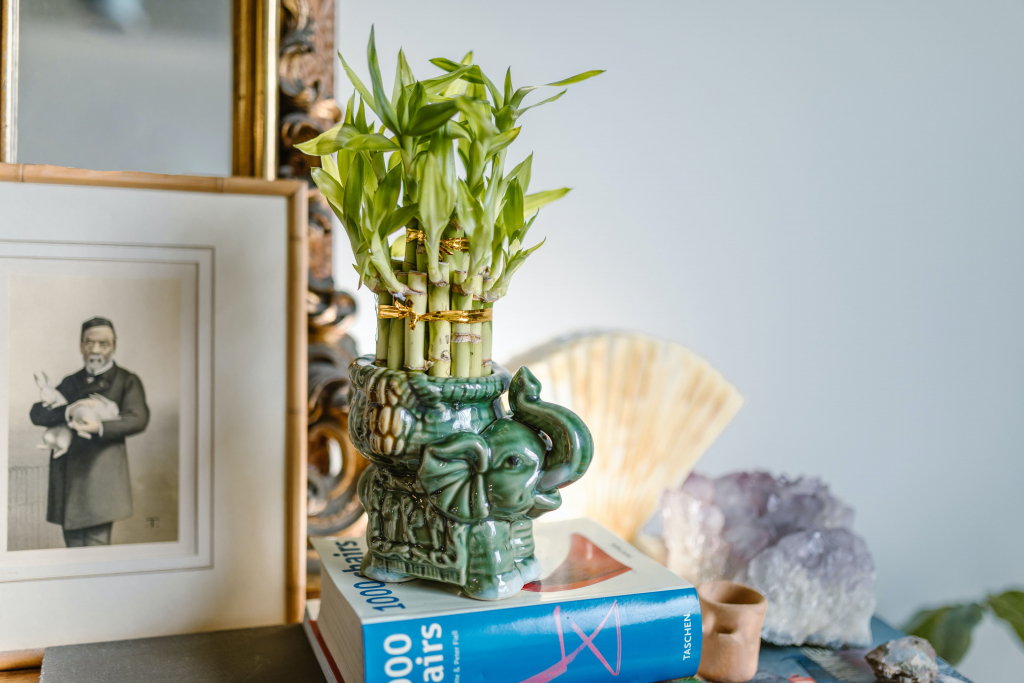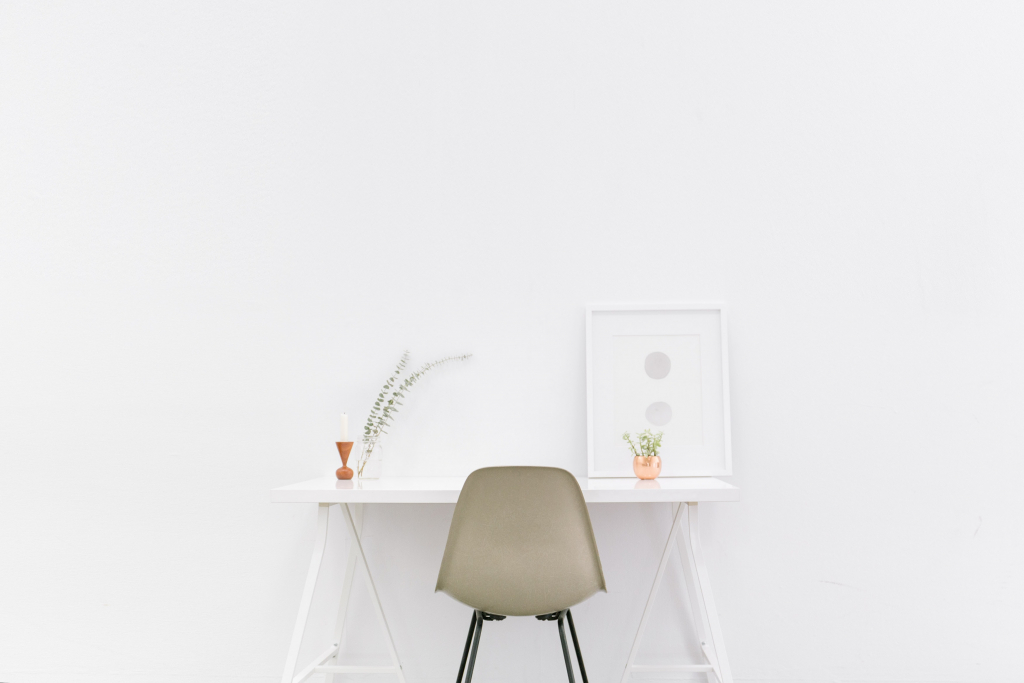One of the basic ideas in interior design is that every detail we use to decorate a home should balance each other. Feng shui, a Chinese practice that takes this one step further, creates harmony in the natural energy of the designs in your home, resulting in good or bad results depending on how the house is designed. So, what is feng shui? Feng shui decoration is a widespread practice, mainly because it allows you to attract numerous influences into your homes, such as wealth and abundance.
To make your year the best it can be, follow the feng shui decoration tips that will bring you luck! In this article we have prepared for you, you can find the best suggestions to answer your question about feng shui and increase your home’s energy using the feng shui practices we have listed.
What Does Feng Shui Mean? What is Feng Shui?
Feng shui is the art of placing and arranging objects to facilitate the free flow of Chi, an energy that affects all aspects of life. Feng shui originated in China more than 3,000 years ago. The literal translation of the phrase is “wind (Feng) and water (Shui)”. Both of these elements are associated with health in Chinese culture. In this context, wind and water evoke the endless and limitless movement of Chi.
Feng shui interior decoration aims to enhance different aspects of your life by ensuring you are in harmony with your environment as energy enters your home. To achieve this, feng shui rules work with the five elements and a model called the Bagua map. These tools guide the placement of furniture and decor items in your home.
What is Feng Shui According to the Elements?
The five essential elements of feng shui are wood, metal, earth, water, and fire. Let’s examine the meanings of these elements in Feng Shui together:
- Wood
It symbolizes growth and vitality. Placing wooden items in your living space encourages personal growth. Plants and wooden furniture are easy ways to add this element.
- Metal
Symbolizes logic and intelligence. It supports knowledge and mental fitness. Consider adding this element to your living space with metal frames or sculptures.
- Earth
It symbolizes stability and balance. It helps to calm and balance. You can bring the earth element into your home with stones, crystals, and landscape paintings.
- Water
Symbolizes wisdom and serenity. It helps with clarity and relaxation. Mirrors, reflective surfaces, and aquariums are ways to incorporate the water element into your home.
- Fire
It symbolizes passion and energy. It encourages transformation, growth, and changeability. You can use candles and red objects to enrich your space with the element of fire.
What is a Bagua Map According to Feng Shui Philosophy?
The most common tool for feng shui home design is the Bagua map. The Bagua map helps to analyze the energy in a particular space and suggests which elements to bring into the space to enhance the flow. Each of the nine quadrants on the Bagua map has an element and an associated color that can help you shape your interior decoration. The nine quadrants are wealth, fame, love, family, health, children, wisdom, career, and helpful people.
Below, we have shown you the Western interpretation of this chart, but there is also a traditional chart. Compass directions define the conventional map, making it more difficult for those new to feng shui. If you prefer not to use the compass method, stick to the Western interpretation and divide the floor plan of your home into a table.

Using the Bagua map to organize your home is not difficult at all. Let’s look at how it works and a few feng shui examples to get started.

What is Feng Shui According to Colors?
- The first quadrant in the Bagua map, the wealth quadrant, is associated with wood and blue.
- The fame quadrant is associated with fire, red-colored objects, and tall objects like floor lamps.
- You can use candles and paired decorative objects for the quadrant of love and romantic relationships.
- The family quadrant, whose dominant color is green, is associated with wood.
- Earth and yellow rule the health quadrant.
- Purple and metal are the leading feng shui elements in the children’s quadrant.
- The Wisdom quadrant is also associated with the Earth. You can decorate your living spaces in this quadrant with books and plants.
- Career is found in the eighth quarter. In this quadrant, you can have mirrors in your living spaces and use dark gray and black decorative objects.
- Finally, the quadrant of travel and helping people is associated with metal and the color white. You can include cornerless furniture and black-and-white duos in these spaces.
What are Feng Shui Decoration Tricks? Here Are Our Suggestions
- Tidy up the clutter. Too much clutter blocks the flow of energy. A clean space allows you to breathe and clear your head.
- Make use of crystals. For example, pink quartz is used for love, tourmaline is used for protection, and citrine is used for healing and abundance.
- Make sure air and light can come in. Since air is a crucial ingredient for the meaning of feng shui, it must be allowed in. The combination of natural light and air brings good energy and rejuvenation.
- Place the bed and desk towards the doorways. Facing the entrance increases strength and minimizes fragility.
- Add a natural element. Try to include a houseplant in every room. Not only do they improve energy, but they also boost health and purify the air naturally.
What is Feng Shui for Rooms? Feng Shui Room Decoration Tips
Now that you have mastered the main elements of feng shui design, let’s move on to how you can use the feng shui philosophy to decorate each room.
Bedroom Feng Shui Decoration
The bedroom is one of the most essential rooms in a home, as it is where we rest and clear our minds. There are some basic principles to follow when creating a feng shui bedroom.
Serenity: Your bedroom should be your escape from the hectic world. In other words, a living space where you can find peace and melt into your bed at night. You can invite deep sleep into your bedroom by painting the walls in light neutral tones, decorating with calm decorative elements, and dimming the lights.
Position your bed correctly, and luckily, place your bed open so you can easily see the door from your bed. The ideal position for a Feng Shui bed would be with your headboard against a solid wall, not a window. But remember that your bed should not face directly towards the door or have its back to the door.
Place your bedside tables correctly: If you have a bedside table, it should be in pairs. According to feng shui, a pair of objects placed in an area where you can see them promotes loving, harmonious energy. An example would be nightstands on either side of the bed.
Living Room Feng Shui Decoration
Your living room is a place to relax and spend pleasant moments with your loved ones. That’s why you want it to have a cozy interior decoration style. A good feng shui living room helps us to balance our homes and create a warm atmosphere.
Here are some tips to follow when choosing furniture and accessories for feng shui living room decoration:
Keep it organized: The living room is where you start your day with a cup of coffee and end it with your favorite movie. Celebrating holidays and birthdays, relaxing in the afternoons, and playing with your kids, it’s a fact that you spend most of your day in this room. So, you should keep your space organized to facilitate new opportunities and energy flow.
Maintain freshness: Fresh flowers can enhance the life force of your living room decor. You can use flower-based artwork, textures, patterns, wallpapers, vases or floral decorative elements. Fresh flowers may not be readily available, but you can use colorful artificial flowers or other solutions filled with plants.
Make proportions: If you want a good feng shui living room, the room should be decorated in proportion to the furniture. First of all, don’t put anything in the doorway and don’t put the main sofa against the wall. Place a lamp in the corner of the room to activate the energy of abundance diagonally opposite the door.
Kitchen and Dining Room Feng Shui Decoration
A feng shui kitchen is considered one of the most essential rooms in the house. It represents the balance between food and relationships.
Harmony: According to feng shui, to ensure perfect nutrition and a harmonious relationship in the home, the kitchen stove and sink mustn’t be placed next to each other. This causes a conflict between fire and water, leading to fights.
Avoid leaving open spaces above your cabinets: To ensure you have the most positive energy in your kitchen, avoid leaving open spaces above your cabinets. Feng Shui says that negative energy can gather here. Therefore, you can use tall cabinets or fill the room with other items, such as plants, to encourage positive energy.
Balance: Use a sideboard to complement the dining room. The sideboard provides storage space for tablecloths, candlesticks, and glasses. You can also use it to display your collections or as a temporary bar.
Make it spacious: Give your kitchen an energetic touch with the proper feng shui lighting. You can create a remarkable space by choosing the most suitable lighting examples and considering the feng shui principles. If your kitchen space is limited and you need help decorating it, check out our blog post, Inspiring Tips for Small Kitchen Design!
Metallic touch: In feng shui, metal is a powerful tool to ward off negative energy. You can balance the power in your kitchen by including metal in it. Metallic colors such as silver tones and brass are perfect choices for rust-free steel kitchens. Adding metal cabinet handles can also incorporate these colors into your kitchen.
Reflection: Mirrors reflect good feng shui food energy into the room and beautify the space. An ornate mirror that takes up most of the wall is a nice way to enhance the power of your feng shui dining room design.
Entrance and Hallway Feng Shui Decoration
If the entrance to your home is cluttered with shoes, umbrellas, or coat hangers, we suggest creating a calm and organized entryway.
Warm welcome: Good feng shui in your entryway helps you enjoy a more peaceful and harmonious life. You can achieve harmonious living by creating a warm and well-planned space with objects that bring positive energy to the people who enter. Try placing plants, wind chimes, or healthy green plants to enhance the ambiance of your home.
Don’t place a mirror facing the front door: Placing a mirror in front of a door is considered bad luck. Mirrors reflect negative energy. Feng shui mirrors in your home should always be perpendicular to the front door and never directly opposite.
Bathrooms and Toilets Feng Shui Decoration
If the master bathroom is the focus of your home’s Feng Shui, you should keep it clean and organized! The bathroom door should remain closed as much as possible, and the toilet seat should be lowered to maintain good luck and prosperity. Considering that plants absorb stagnant energy, keep a houseplant in your bathroom. To enhance the interior design of a home, Feng Shui experts recommend the Chinese money plant, which is said to bring wealth and good luck to a family. With its circular leaves resembling coins, the Chinese money plant promotes wealth, abundance, and good fortune.
Now that you have answered your question about what Feng Shui is and have a lot of new information about Feng Shui home decoration, it is time to start implementing these recommendations and share them with your loved ones!


